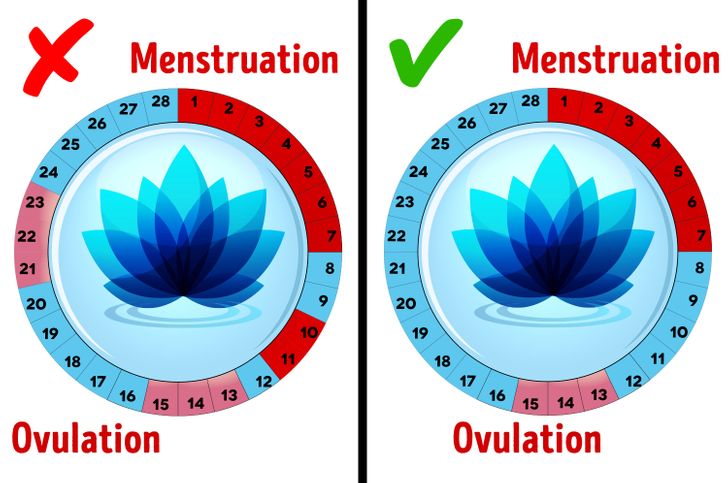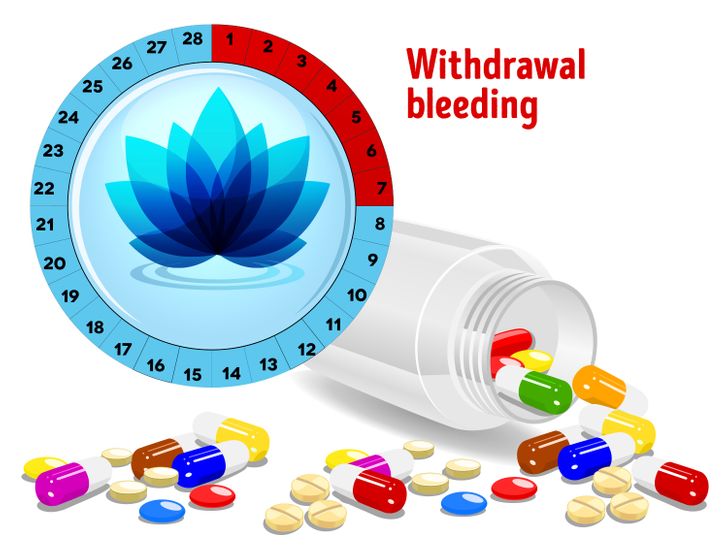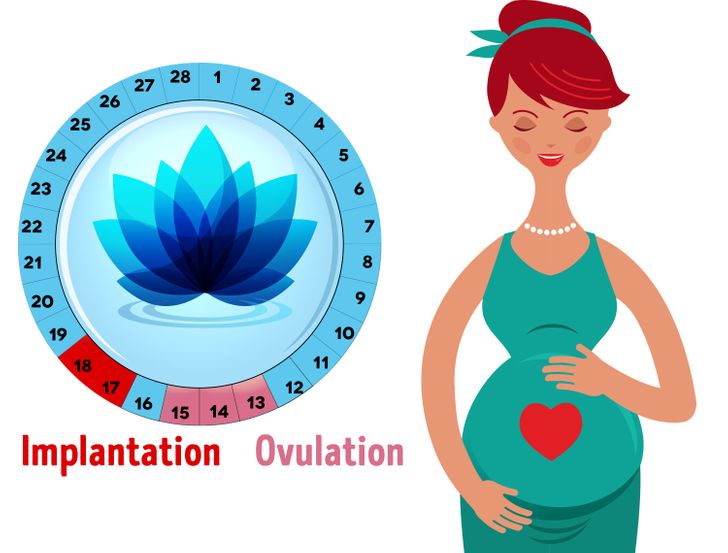Right before our period, we start to look at the calendar and worry about whether our period will be okay and on time. And mid-cycle bleeding can make us panic.
We understand that it is very important to take care of our health. That is why we are ready to answer the most common questions about periods.
Should I Worry If My “schedule” Isn’t Always On Time?

No. All women are different. A cycle can go from 21 to 35 days. In addition, a woman may notice changes in her schedule: this month menstruation comes earlier, the following month it comes later.
The same goes for the length of periods. Generally, most women’s periods last around 4-7 days, starting with light spots, then the flow becomes heavier, and then gradually clears up.
How To Distinguish Your Period From Just Spotting?

First, period blood is dark red in color and contains particles from the mucous membranes that line the uterine cavity (endometrium). Spotting refers to the very light brown discharge that occurs between menstrual periods. As a general rule, this discharge is not dangerous.
Doctors do not treat mild discharge that occurs during ovulation as a pathological problem. This happens due to a decrease in estrogen, which is the female sex hormone. By the way, some women may experience ovulation and feel pain in the lower abdomen a few days before or after ovulation.
When Is It Recommended To See A Doctor When It Comes To Bleeding Between Periods?

Any irregular bleeding can indicate that something is wrong.
It is very important for women to pay attention to discharge after ovulation during the luteal phase. The yellow body, a temporary endocrine structure, appears and begins to produce progesterone.
This hormone restores the endometrium and makes pregnancy possible in women. If the progesterone level is low, irregular bleeding can occur.
See a doctor when bleeding occurs due to an improper dose of birth control or if you experience lower abdominal pain accompanied by a fever.
Hormonal failure can also cause sudden bleeding. Visit a doctor if you do not have birth control, but breakthrough discharge still occurs on the same days as your cycle. In most cases, estrogen deficiency is the main reason.
What Is The Connection Between Birth Control Pills And A Fake Period?

Many people think that when they stop taking birth control, within their 7-day range, they will have a normal period.
It’s actually called a withdrawal bleed or false period. It is shorter than a normal period, less painful, and the bleeding is not as heavy. A regular period can occur only after a woman stops taking birth control pills. It takes 6 to 12 months to restore a normal menstrual cycle.
Can Bleeding Indicate That You’re Pregnant?

Yes. Implantation bleeding can occur a few days after conception when a fertilized egg attaches itself to the lining of the uterus and slightly damages the vessels. By the way, the amount can be very small, just a few drops. Therefore, the process often goes unnoticed.
Features that can distinguish a regular period of implantation bleeding:
- blood color is bright red (menstrual blood is darker);
- bleeding lasts no longer than 2 days and doesn’t get heavier in the middle;
- the process isn’t painful.
What Do You Do If Contact Bleeding Occurs?

As you can probably deduce from the name, this bleeding occurs during contacts, such as sexual intercourse or a physical exam. The blood is bright red in this case.
If the damage is not severe, the contact bleeding will not last long. But if that doesn’t stop, you should contact a doctor immediately. An exam is also necessary if contact bleeding occurs regularly.
Did you find this article helpful? What other advice can you give?
Preview photo credit Depositphotos, Depositphotos


